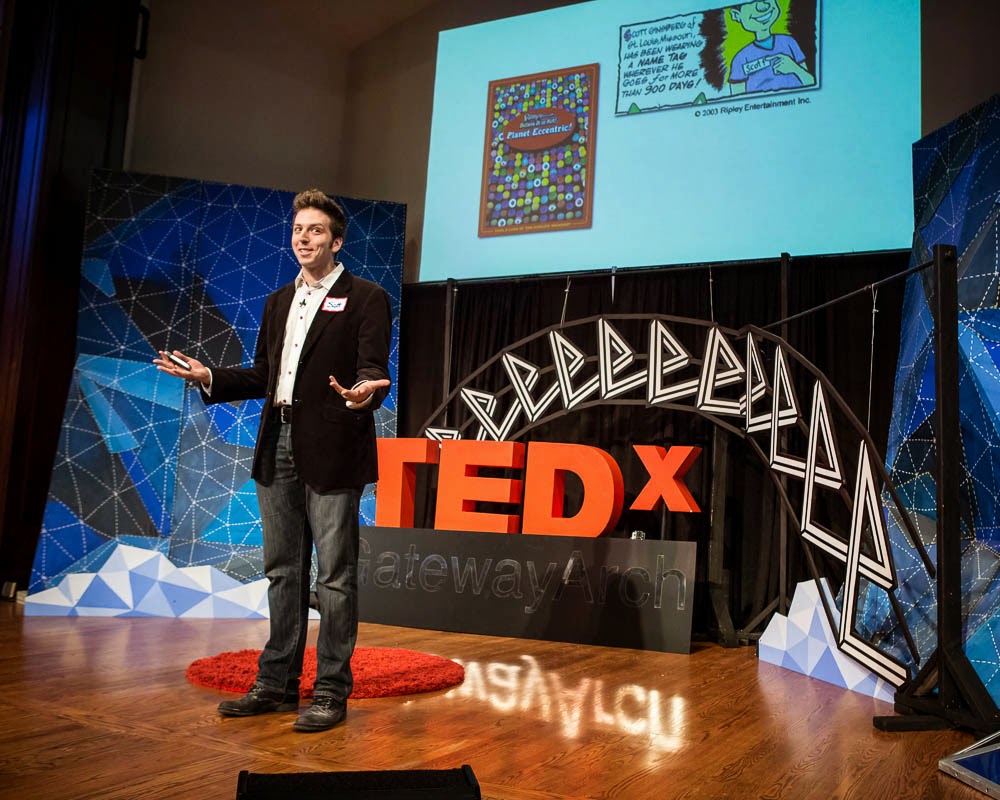

All creativity begins with the moment of conception.
That little piece of kindling that gets the fire going. That initial source of inspiration that takes on a life of its own. That single note from which the entire symphony grows. That single spark of life that signals an idea’s movement value, almost screaming to us, something wants to be built here.
And so, in this blog series, I’m going to be deconstructing my favorite moments of conception from popular movies. Each post will contain a video clip from a different film, along with a series of lessons we can learn from the characters.
Today’s clip comes from the menu scene from Chef:
What can we learn?
Stick around, outlive the critics. Casper struggles with the classic artist’s dilemma: Cook for the customers or cook for the critics? On one hand, there’s something powerful about creating things worth being criticized. Because most art is ignored. And if you’re making people react, you’re making a difference. On the other hand, there’s something wildly satisfying about creating art for yourself. Because we can’t guarantee that anyone else will give a shit. And it’s nothing personal, it’s just that most people are too busy, too inundated with information and too focused on their own work to even notice. I’m reminded of an interview with another famous director, whose third film was considered to be a box office flop. When asked what went wrong, he said the movie didn’t do well because it wasn’t a wish fulfillment idea. It didn’t represent the audience’s dream. And I thought to myself, okay, but what about the director’s dream? What about fulfilling the wishes of the creator? That seems more important. I understand everybody wants to see a little bit of themselves on stage, but making art isn’t about everyone else relating to it, it’s about me relating to it. Creating is about acquiescing to the ambitions of the world, it’s about sharing a vision of life and the nature of the people who inhabit my world. Are you willing to please yourself and let others follow?
Have faith in yourself to make it all back. What I love most about this movie is its origin story. Favreau wrote the script after directing several big budget films, wanting to create a small scale, independent movie about cooking. And so, he willingly stepped down from the billion dollar world of superhero films, returned to his indie roots, and made the movie he wanted to see in the world. That takes guts. Favreau burned everything down and salted the earth, just to see if he could do it again. He threw himself curveball, just to test how much faith he had in his own work. Perhaps that’s the real art. The willingness to start from scratch, let go of everything you’ve tried and built and accomplished, except for the person you’ve become, and reinvest that into something brand new. Favreau talks about this publicly, too. In a recent interview, he revealed own his moment of conception, how the script for this movie just hit him, and he wrote all day every day until it all came out. Just like he did twenty years ago with his first movie. The point is, inspiration comes unannounced. If you’re lucky enough to be inspired to do something, you have to follow that vibe and see where it takes you before it’s too late. What’s your framework for converting inspiration into something real in the world?
If they love you, they’ll buy everything you have. Chefs have a lot in common with writers because they get on thematic kicks. They investigate the fabric of myths in their lives, following conceptual pathways for as long as they bear fruit. And they cook and cook and cook until the vein is out. But once they reach the point of diminishing returns, they pivot. They update the menu, allowing each theme to show them the way down the road to the next one, trusting that new meaning will arise in unexpected places, and trusting that their audience will follow them as they blaze this new trail. Carlin epitomized this phenomenon. In the early seventies, he completed reinvented himself, both through his personal appearance, and also through his style of radical social commentary. He began tackling issues about drugs, birth control, dirty language and other dangerous topics, earning him equal amounts of controversy and fame. But he knew exactly what he was doing. In a fascinating retrospective about his comedy career, George said that although his audience didn’t always want go to those thematic places initially, once they arrived, not only did they laugh when they got there, but they were glad he took them there. Proving, that if the audience truly loves you, they’ll follow you down whatever path you take. What would make you an outstanding leader a year from now?
LET ME ASK YA THIS…
What did you learn from this movie clip?
LET ME SUGGEST THIS…
For a copy of the list called, “22 Unexpected Ways to Help People,” send an email to me, and you win the list for free!
* * * *
Scott Ginsberg
That Guy with the Nametag
Author. Speaker. Strategist. Filmmaker. Publisher. Songwriter.
scott@hellomynameisscott.com

Never the same speech twice. Customized for your audience. Impossible to walk away uninspired.
Now booking for 2015-2016.
Email to inquire about fees and availability. Watch clips of The Nametag Guy in action here!
